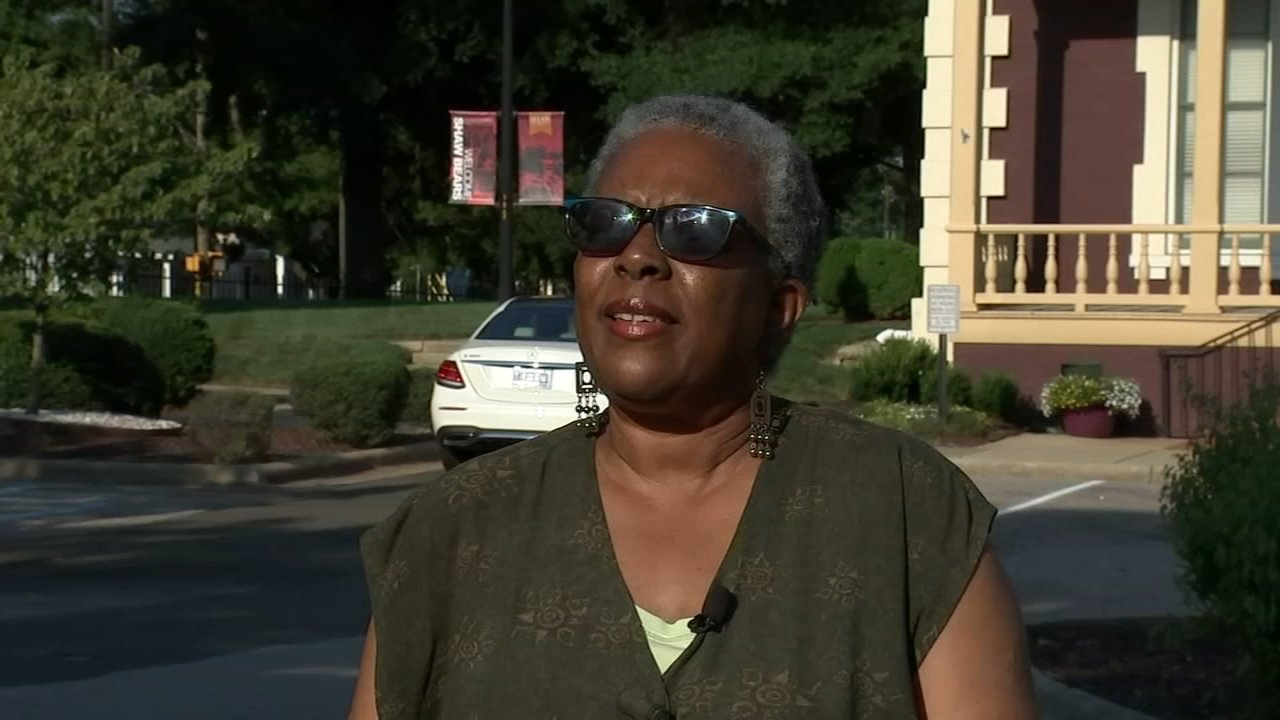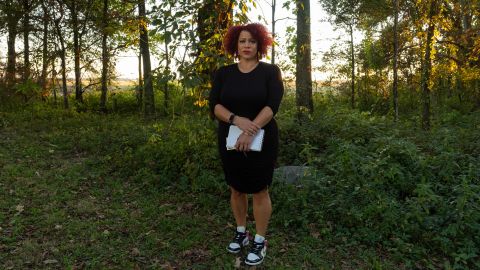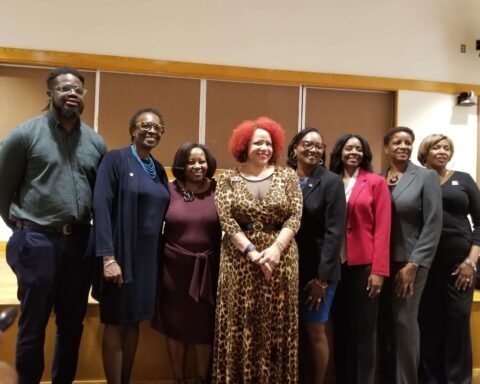There were many Black professionals and academics watching Tuesday morning’s interview with Nikole Hannah-Jones as if they were sitting in a Black church. That is to say, there were some loud “amens” spoken in agreement to what Hannah-Jones said about achieving success in white spaces.
“I’ve spent my entire life proving that I belong in elite white spaces that were not built for Black people,” she told interviewer Gayle King, detailing the clarity she gained from what she called the “shabby” treatment she received from UNC-Chapel Hill through her tenuous battle for tenure. “I decided I didn’t want to do that anymore — that Black professionals should feel free and perhaps an obligation to go to our own institutions.”
Dr. Valerie Ann Johnson, Dean of Arts, Sciences and Humanities at Raleigh’s historically Black Shaw University, was watching the interview as her cell phone’s text thread of fellow Black academic was lighting up.
“We’ve been watching what happened and when she made that announcement, we were like, ‘Right, sista! Now, you see!'”
Johnson graduated undergrad at Atlanta’s elite HBCU, Spelman College; then moved professionally to crack the glass ceilings at elite predominantly white institutions — first at UC Berkeley and from 1993 to 2004 as an assistant professor at UNC-Chapel Hill where she was on track for tenure.
“And just as I was preparing my package to go up for tenure, I was not receiving the best support that I could of,” Johnson said. Dr. Johnson was never tenured in Chapel Hill. She cites several roadblocks — the biggest being a lack of support from department leadership at the time.
“So it’s that constant tension of are they seeing me for me or are they just seeing me as a token,” Johnson said. “You have to constantly look inside yourself to see, am I really worthy. Is this something I really want to do? Is this a place I want to be?”
What Hannah-Jones is doing now, Johnson did years ago. She took her academic and professional credentials to a long-standing and under-resourced HBCU — finding professional solace where it was lacking before.
“It’s huge for HBCUs,” Johnson said. “It’s a huge day because it’s vindication of the work we have always been doing.”
Another side of this story are the Black academics who decide to stay at predominantly white institutions.
In an interview with ABC11, last week in the midst of the tenure controversy, UNC professor Deborah Stroman said she was “happy” for those who choose to leave and find joy at HBCUs. But, she said she was choosing to stay for all of the Black and brown students who need to see, engage with and gain advisement from faculty who look like them.







